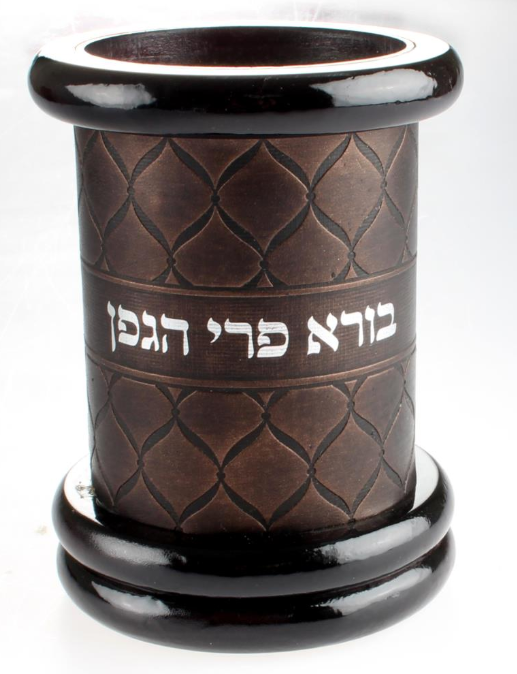
Avoiding Evil
We can choose to dirty our souls with momentary pleasure, or we can enjoy the light of God's Presence.

We can choose to dirty our souls with momentary pleasure whose end is bitter, or we can enjoy the light of God’s Presence.
"Turn from evil and do good; seek peace and pursue it" (Tehillim 34:15).
Whenever a person refrains from sinning by "turning away from evil," God actually considers it as if the person were "doing good." Thus, our rabbis said that the first two commandments, "I am the Lord, your God," and "You shall have no other gods before Me" were heard as a single utterance; for by fulfilling the second, we automatically fulfill the first. The Zohar states that the first commandment is the root of all positive mitzvot in the Torah, while the second is the root of all negative ones. But the truth is, whether we are actively performing God’s will or merely refraining from sin, we are still coming close to the creator, which is for our eternal good.
The Midrash says: "Whoever sees an indecent thing but does not indulge his eyes will behold the Shechinah. How do we know this? Because the verse states: ‘He shuts his eyes from beholding evil… your eyes will see the King in His beauty’" (Yeshayahu 33:15-17).
How awesome are these alternatives: we can choose to dirty our souls with momentary pleasure whose end is bitter, or we can enjoy the light of God’s Presence. God tests us every minute (Iyov 7:18). Chazal tell us that in one moment, in the blink of an eye, we can merit the World to Come. The word, sha’ah – moment – is the same as the word "to turn toward." That is in a single turn toward goodness, a person can merit eternal blessing. We need only turn our face away in one decisive instant to guarantee our reward. The same holds true of every good deed; each one repairs our spiritual vision and enables us to behold the beauty of the Shechinah.
Building the Personal Temple
This is what is meant by building our personal Beit Hamikdash. Our rabbis tell us, "When a person has an awareness of God, it is as if he has rebuilt the Temple in his day." The Temple of a Jew is the pure and simple faith in his heart and his deep recognition of God. With our every good deed, with each prayer uttered, through Torah study and by overcoming our evil inclination, this Temple is built.
The Talmud tells us that Torah study in the days of Rav Yehudah was nowhere near as extensive or penetrating as that of later generations; his students devoted all their time to one tractate – Nezikin, the laws of damages. Yet, in a period of drought, Rav Yehudah only had to remove a single shoe to signal the onset of a fast, and the rain would come pouring down. Later generations mastered the entire Talmud with the greatest subtlety, yet they could not produce such salvation. The holy Rav Pinchas of Koritz commented: "The Talmud says that their studies were entirely over how to avoid damages. That is: how not to damage the mouth with loshon harah, how not to damage the eyes with forbidden glances, how not to damage the body with non-kosher foods. This gave them such spiritual meritthat even the slightest prayer, as in the case of Rav Yehudah, immediately brought about rain."
This explains why King David began the book of Tehillim with the words, "Fortunate is the man who does not walk in the counsel of the wicked." The word, "fortunate" usually refers to success; for instance, when a person works hard at his studies and rises to greatness, or when parents invest large amounts of time and money into their children’s education and raise them properly. Even in mundane matters, a person who profits well from an investment is called fortunate." He may not have lost, but he hasn’t’ gained either.
Perhaps King David was saying that even a person who avoids sinning, who "does not walk in the counsel of the wicked," should be considered fortunate, because by turning away from evil, he is also doing good, and that is very fortunate indeed.
Our Rabbis state this explicitly. "Whoever refrains from sin, is rewarded as if he performed a mitzvah. [As proof for this statement,] Rabbi Avin cited the verse: ‘They also do not sin – they go in His ways’ (Tehillim 119:3). Furthermore, the verse does not say, "Fortunate is the man who walks in the counsel of the righteous,’ it says, ‘Fortunate is the man who does not walk in the counsel of the wicked,’ for this is the same as walking in the counsel of the righteous."
This is comparable to pruning a tree. By merely trimming away the bad branches (which is considered a positive act in regards to the laws of Shabbos and Shmittah), one causes the entire tree to blossom and grow.
(Used with permission from the author. Taken from the book "In all my Ways" Keren Ohr Publications.)











Tell us what you think!
Thank you for your comment!
It will be published after approval by the Editor.